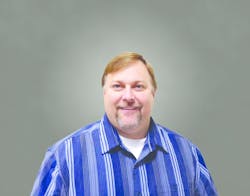CA Operator Recounts Successful CAVC Legislative Day
Operators in the California Automatic Vendors Council (CAVC) had the opportunity to travel to the state capital of Sacramento last week to participate in an annual legislative day with policymakers. Jeff Leider, president of San Marcos, CA-based Tri-R Coffee & Vending and first time legislative day participant, reported that 15 attendees split into three different groups and spoke on the three topics of unfair taxation of the industry, scheduling rules and the BPA sign requirements.
“I thought the legislation day was great because they [policymakers] were unaware of the taxes as well as how the scheduling will hurt our industry,” said Leider. “They didn't know that vendors are taxed on items that are not taxed anyplace else. Basically we were just asking for equality in the tax code.”
For example, if someone buys candy at a convenience store, they will not pay tax, but if they buy it out of a vending machine operators pay the tax for their purchase. “We don't want the others taxed of course, we want our tax abolished,” Leider said.
The second issue addressed the scheduling labor law. “In a nut shell you would have to schedule your employees 28 days in advance with no changes,” said Leider. “So for example in our industry if a customer calls us on a Wednesday and says we are painting our breakroom and need the machines moved on Friday, we have to by law say ‘Sorry Mr. or Mrs. Customer due to the new scheduling labor law we cannot do that for another 28 days.’ This looks like it will not pass, but it is scary that they think of these things.”
The CAVC also addressed Prop. 65, a BPA emergency initiative that states operators must put a 5"X5" BPA warning sign on their beverage machines and coolers. “If we don't have them on and we get a call we have 24 hours to put the sticker on the machine or risk a $2,000 fine. This is not something for them to vote on, but we wanted them to be aware that as of now it is in effect,” said Leider.
Overall Leider noted he was glad to have participated in his first legislative day. “The trip was about educating the elected officials on issues that affect our industry and developing relationships. They won't help if they don't know about something and how it affects us. They also won't help if they don't know who we are.”
